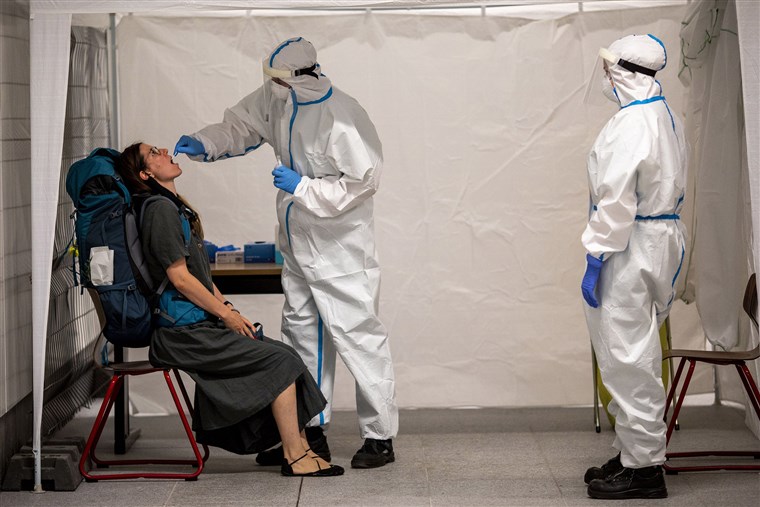Germany’s COVID-19 Infections Surges To Record High With 1,707 New Cases In Last 24 Hours
Source: Germany and COVID-19 Aug 20, 2020 5 years, 6 months, 1 week, 6 days, 22 hours, 7 minutes ago
Germany and COVID-19: Authorities in Germany are on high alert as the country recorded 1,707 new COVID-19 infections in the last 24 hours, the highest ever daily number of infections since April.

The country had initially fared much better than its neighbors as a result of strict measures during the start of the global pandemic. It also had the among the lowest mortality rates in Europe when compared to UK, Italy and France.
Unfortunately as a result of the relaxing of measures and reopening of the economy coupled by the summer holidays and complacency among locals, the country is beginning to see the nightmarish scenarios re-occurring again.
Local health authorities said that much of the rise has been blamed on returning holidaymakers as well as parties and family gatherings.
The official figures, from the Robert Koch Institute (RKI) for infectious diseases, present a total of 228,622 COVID-19 infections in the country since the start of the pandemic.
According to the Robert Koch Institute (RKI), the public health agency which compiles the COVID-19 number in Germany, the number of new cases reported daily has been increasing since July 20.
The agency on Wednesday put the seven-day cumulative COVID-19 incidence rate at 9.3 cases per 100,000 inhabitants. On August 12, it stood at 7.0.
The agency in a media briefing said, "This development is very concerning and increasing in dynamic. A further worsening of the situation must be avoided.”
The agency also flagged in its daily reports that that the average age of infection has been decreasing and that incidence in younger age groups has increased and is now "much higher" than in older age groups.
It warned, "On the one hand, the increase in younger age groups needs to be stopped, on the other hand, transmission into older and vulnerable groups needs to be prevented. As soon as the number of infections rises among elderly individuals, hospitalizations and the number of deaths will likely rise as well.”
The alarming surge in cases has led the federal government to put all of Spain except the Canary Islands as well as large swathes of the Balkans on its list of high-risk areas which imposes a mandatory 14-day self-isolation and test upon arrival from there.
Typically, these summer holiday destinations are particularly appreciated by German holiday-goers.
Sadly the current situation is taking the daily toll back to a level not seen since late April, when the pandemic was considered to be at its peak.
The highest ever record of new cases in 24 hours in Germany was just over 6,000, registered in early April.
German health authorities also reported ten new deaths in the past 24 hours, bringing the total to 9,253.
As a result of a surge in new cases, Germany earlier in August had introduced free, mandatory tests for anyone returning from areas deemed a high risk for COVID-19 infections.
Germany’s chancellor Angela Merkel warned on a few days ago that there could be no further relaxation of coronavirus restrictions.&
lt;br />
She stressed that Germans should follow the rules on hygiene precautions and reminded travellers returning from risk areas that quarantine was not an option "but a must" so long as they could not show a negative test.
Certain medical researchers however are claiming that the jump in the infection toll could be explained by a sharp rise in the number of tests being carried out in the country.
For more on
Germany and COVID-19 updates, keep on logging to Thailand Medical News.
